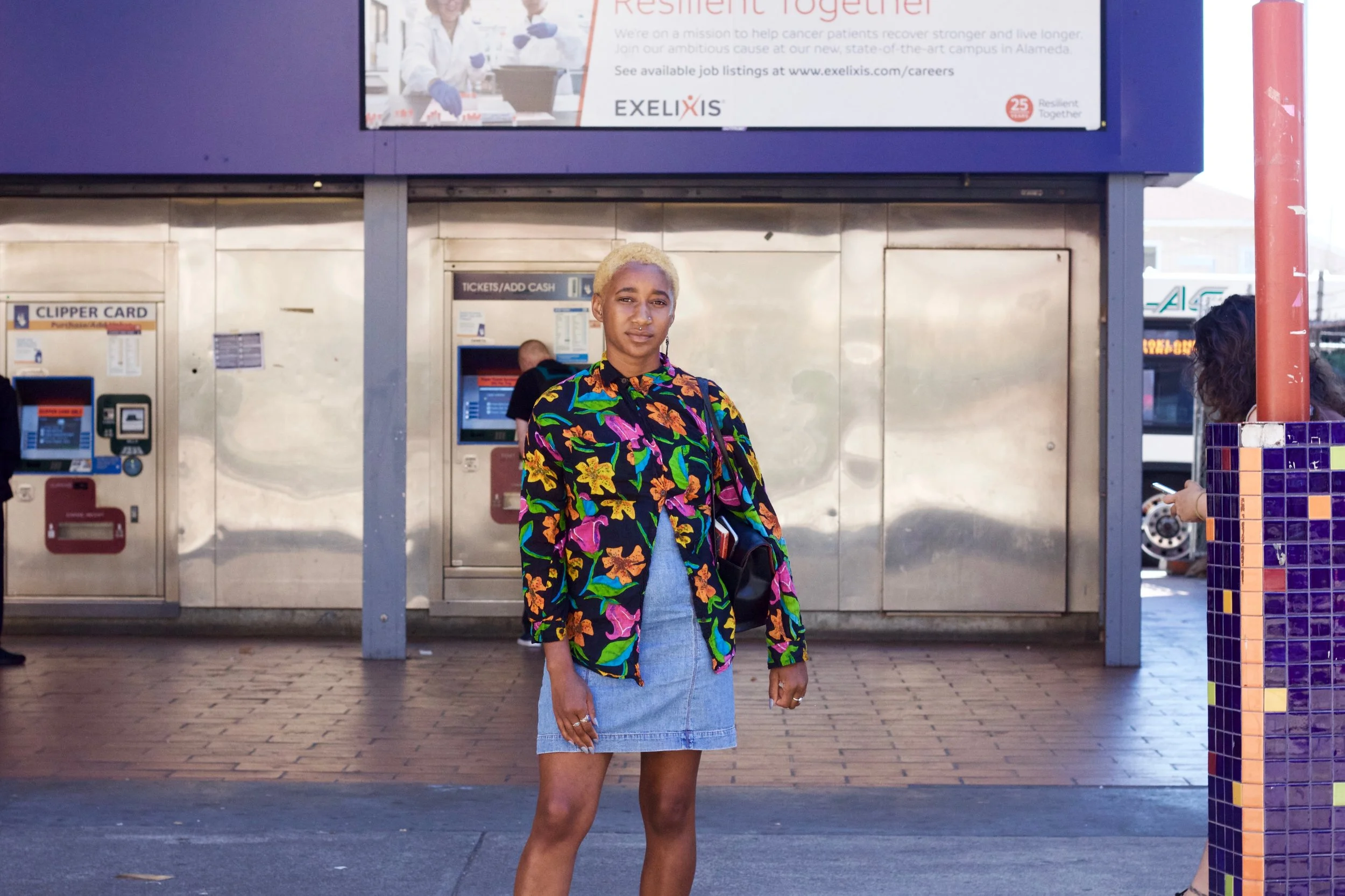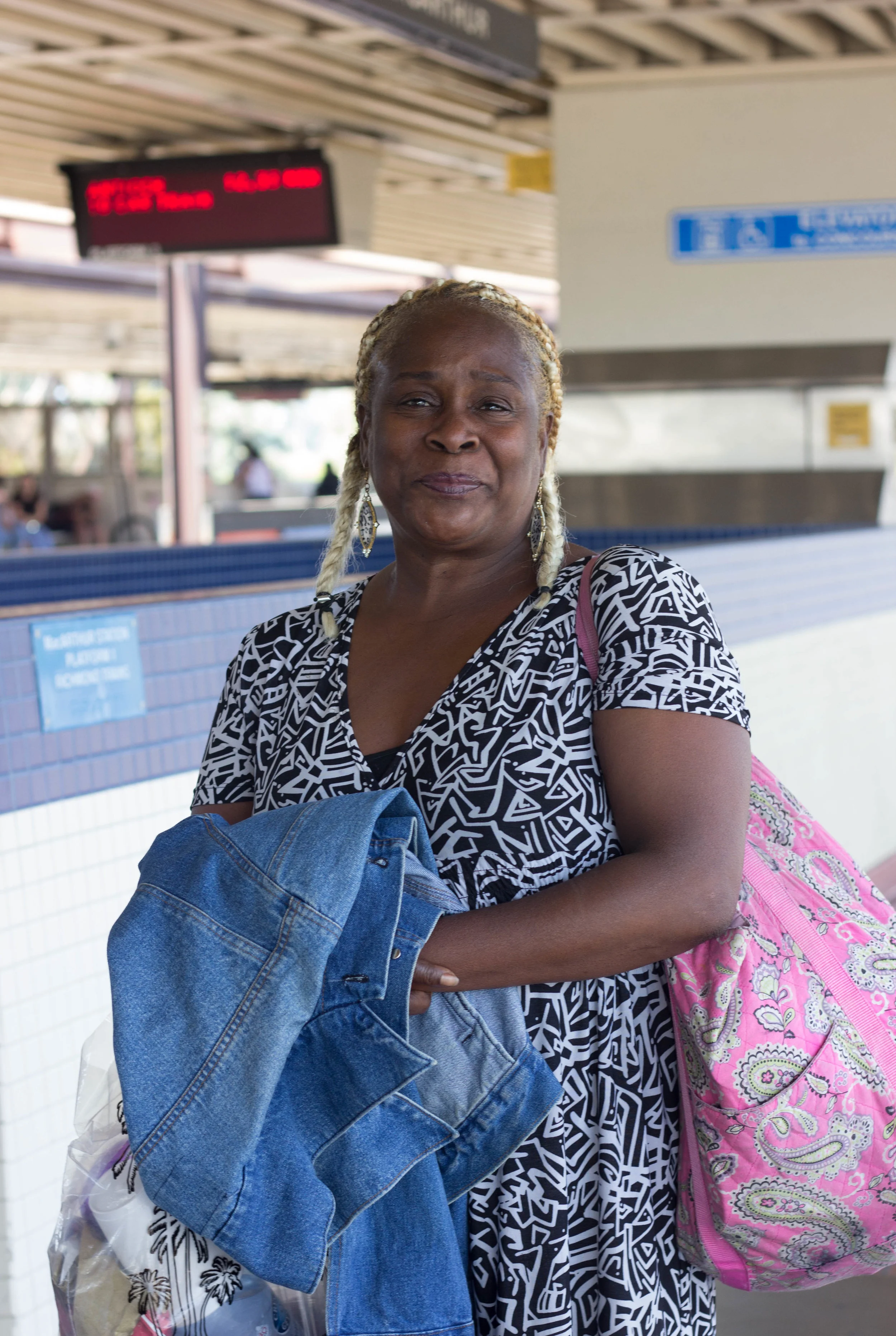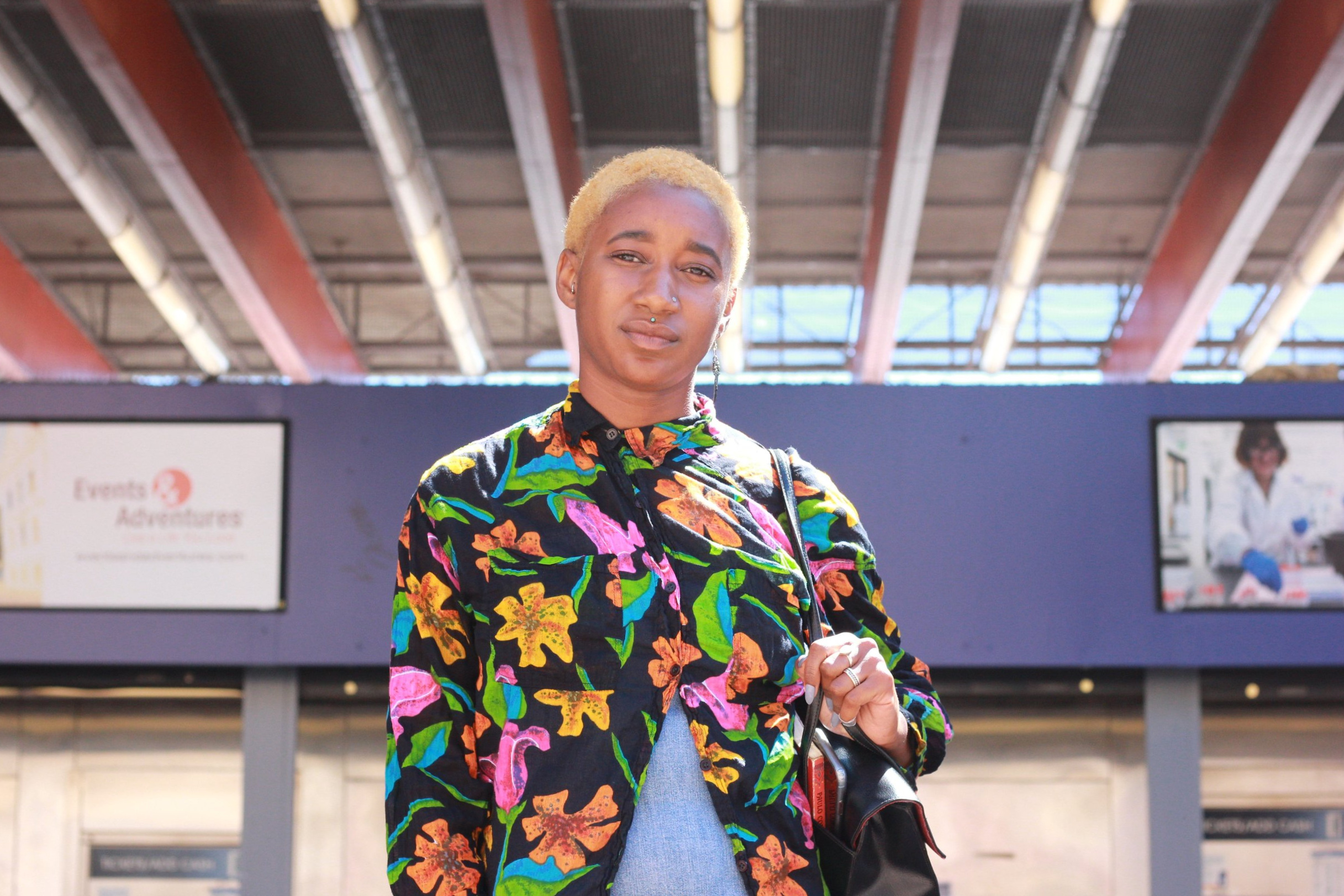Liya, MacArthur Station, Oakland
Make It Home Safe
On July 22, 2018 Nia Wilson and her sisters, Letifah and Tashiya, stepped onto the platform of MacArthur BART Station. Moments later, John Cowell came from behind them and brutally attacked Nia and Letifah. Letifah survived but Nia died shortly after the attack.
I often travel alone and Nia’s story could have easily been mine and many Black women I cross paths with on my journey. I began to ask other Black women about their stories of feeling unsafe while traveling alone on public transportation. Although Black women are nearly three times more likely to die by homicide than white women, the common thread among these stories is that Black women aren’t seen as victims. And it is often only Black women watching over each other.
Make it Home Safe is an assertion that Black women are deserving of protection and care.
Sabine and Grace, 19th Street Station, Oakland
“Just minutes before taking this photo, a man in a bar touched me. Grabbed me at the waist because he wanted to tell me he thought I was attractive. Then I get on BART where days before Nia Wilson, a Black woman, was murdered by a white man. The world is constantly reminding me that I am never safe as a Black woman. Not on the streets, not on BART, not in restaurants. Nowhere. Where do I get to just relax and be?”
Maya, Fruitvale Station, Oakland
Moriah, 12th Street Station, Oakland
Honey, May, and Heaven, Coliseum Station, Oakland
Sharla, MacArthur Station, Oakland
Marissa, 19th St. Station, Oakland
“It’s hard not to think that I could vanish and nothing would happen in response.”
Jackie, 19th St. Station, Oakland
Elizabeth, MacArthur Station, Oakland
“ When Nia was killed, I didn’t want my back to be turned towards anyone. I hate always feeling on the defense in public but nobody defends black women, or black queers but other black women/queers.”
Nia, West Oakland Station, Oakland
There is a blinkered symmetry to the way Americans have been taught to understand violence that is gendered and violence that is racialized: the victims of the former are white women; the victims of the latter are black men. The same violence, when visited upon black women, falls outside the recognizable parameters of victimhood, and thus fails to register. -Doreen St. Felix, The Very American Killing of Nia Wilson
OHMi, 16th St. Mission Station, San Francisco
“I’m not scared of people. And I’m not scared of what people can do to me. I try not to live my life in fear so I continue about my day...I know that my ancestors and I know that the Orishas and I know that God watch over me all the time. I know that I’m protected.”
“Writing for me is a healing process and one that brings me joy. I am a poet and writer, so I use those art forms as a way to both reflect on my lived experiences and share them with others. Being in community at Open Mics and creative arts spaces where I can exchange my craft with others is important. Being intentional about sharing space with other black people and people of color is an important part of that practice as well. Dance is my other love. Movement and physical expressions of joy are needed parts of positively affirming my lived experience. Being able to express myself creatively is self care in its most effective state for me.”
“Many of us were introduced to Nia in her darkest moments. I can only imagine her cracking jokes, rapping with her friends, doing her makeup...In the process of organizing this project I felt the heaviness all of these similar experiences starting to take hold. I knew I didn’t want to leave this project at grief.
I took a break to go to a spoken word event in Oakland called Second Mondays. A woman named Nia McAllister got on the microphone to perform a grounding piece called “Black Girl Walking” in tribute to Nia Wilson. I thought about how aligned Black women are in making sure our names are spoken, our stories heard. Nia was so gracious to share her story with me and her poem for this clip.
The women I’ve photographed in these cold spaces are beautiful and brave and I wanted to represent that in movement. I asked them to send me clips of them living in their joy: rapping, dancing, skating, smiling, living. While understanding the real danger around us as Black women, we still live our lives. We have ancestral protection. We still thrive. ”
















